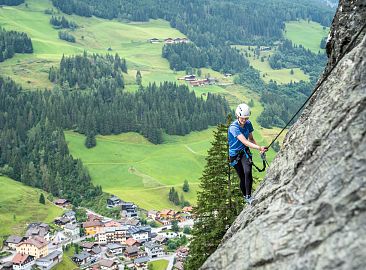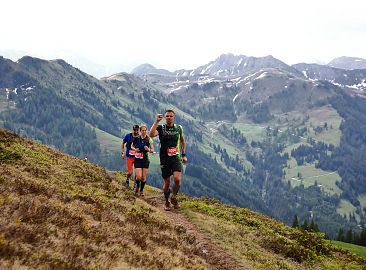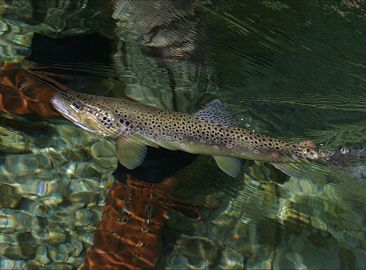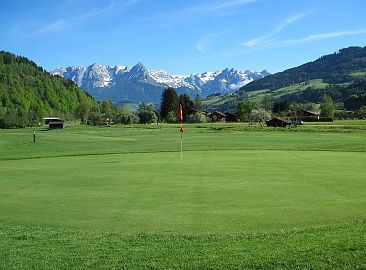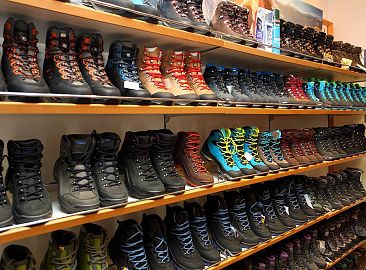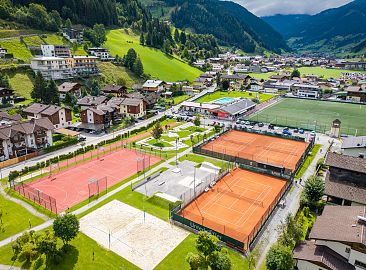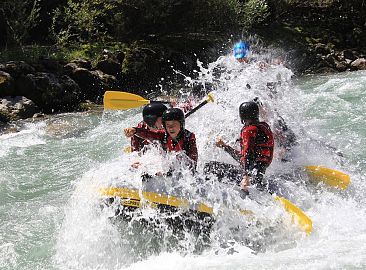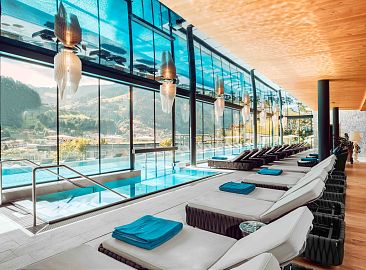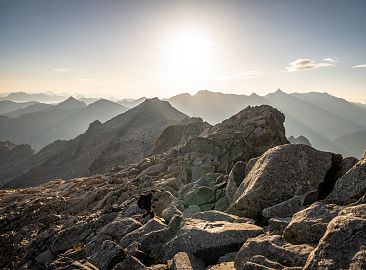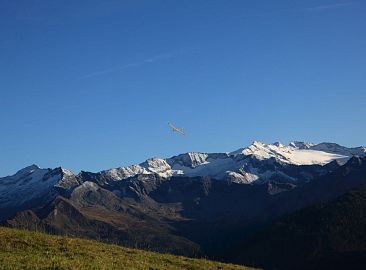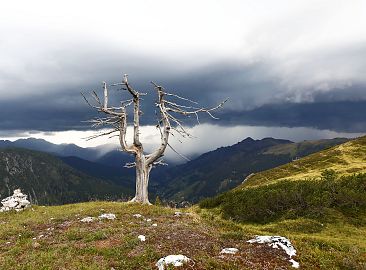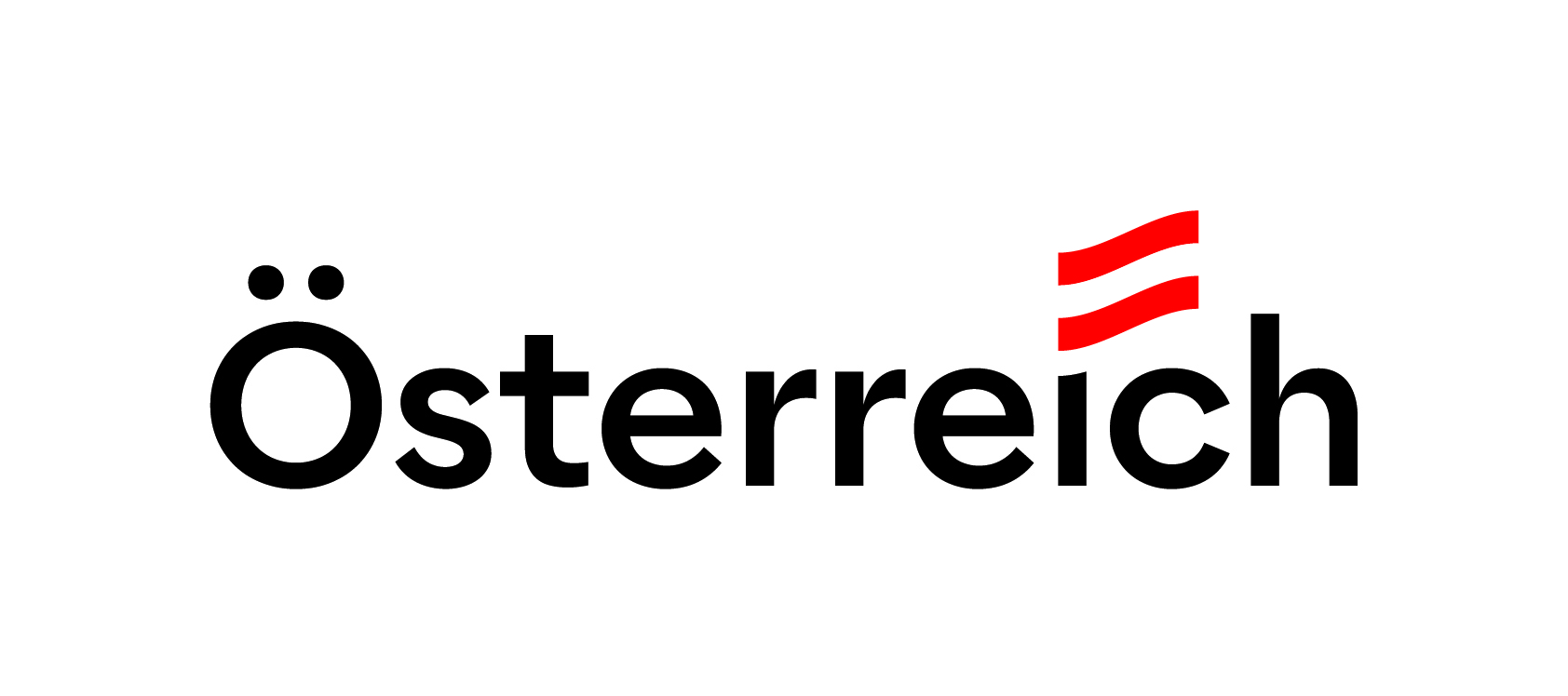Via ferratas & climbing routes
reaching new heights in Grossarltal
In the region Grossarltal, more precisely in the two villages of Grossarl and Hüttschlag, there are several via ferratas with different levels of difficulty waiting for all climbers among you.
“Bella Cascinaia” is the name of the alpine via ferrata in Grossarl. This via ferrata leads to the Saukarkopf, the 2,048 meter high local mountain of Grossarl. You can access this climbing route by taking a hike from the Vorderstadluck parking lot to the Saukaralm (approx. 2 hours) and from there it is just a few meters to the start of the via ferrata.
You can reach the “Kupfergeist”, “Gletschergoass” and “Franzl” via ferratas directly from the center of Hüttschlag. You can reach the start of this climbing area in around 25 minutes. The names of these via ferratas come from the old legends of Hüttschlag.
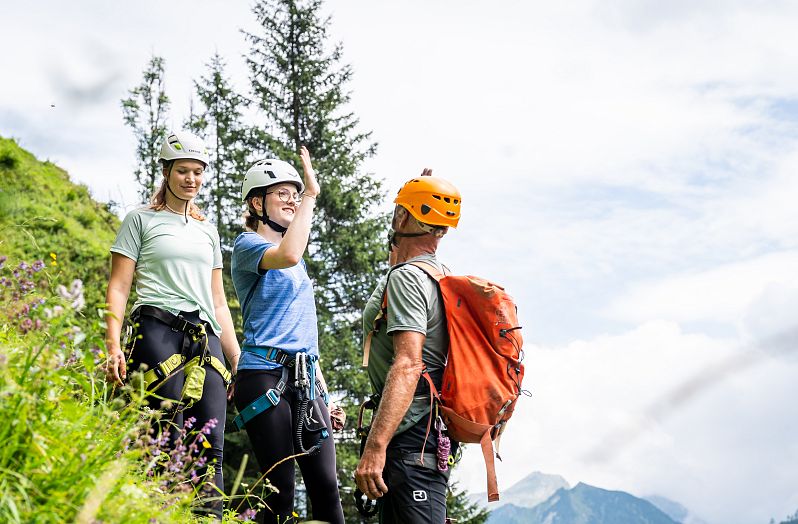
Want to try climbing but don't dare to do it alone? Then you should consider participating in guided via ferrata tours and rock climbing samplers with BERG-GESUND in summer. Find more information about guided climbing tours here. In winter, sport climbing taster sessions are offered in the climbing hall at the Berg-Schule Grossarl.
Via ferratas in Grossarltal
explore the routes in the villages of Großarl and Hüttschlag
A myth has been shattered: the "Hüttschlager Wand," previously deemed impassable even for experienced climbers, has been tamed since summer 2009 thanks to the secured via ferrata known as the "Kupfergeist." It features 150 m of vertical rock, with difficulty levels rated C – E. Impressive specs, indeed, of this fixed-cable climb in Hüttschlag.
For beginners, there's a parallel, shorter, and easier practice via ferrata named "Gletschergoass" (difficulty A – C, length: 150 m, height: 50 m).
Added in 2012 is the "Franzl" via ferrata (named after its creator Richard Franzl), 400 meters long and 210 meters high, with difficulty levels C – D.
Further climbing opportunities in Grossarltal include the "Bella Cascinaia" via ferrata on the Saukarkopf (2,048 m) and about 10 different climbing routes of varying difficulty on the Arlspitze. A via ferrata climbing set and a helmet are absolute musts for all via ferratas.
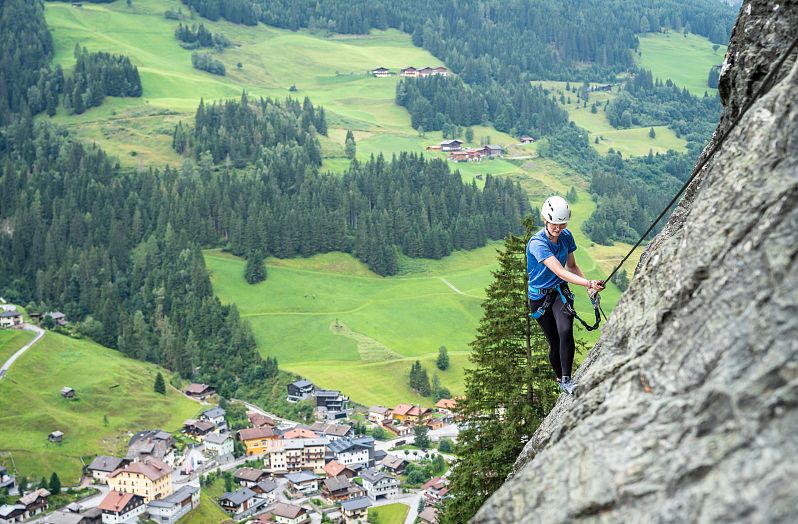
Approach: Easily accessible from the center of Hüttschlag, a 25-minute walk leads to base of the via ferrata (take a left after Tischlerei Huber).
Awaiting you here is a via ferrata with a length of 240 m and spanning 140 vertical meters. The difficulty rating is D and E. The via ferrata ends at an exit platform, which can also be reached on foot via a marked hiking trail from Hüttschlag towards Hundegg. The last part of the hiking trail is likewise secured with ropes and only recommended for hikers without a fear of heights. The view from the exit platform over Hüttschlag and the valley head is truly unique. The comfortable descent is then via the marked hiking trail.
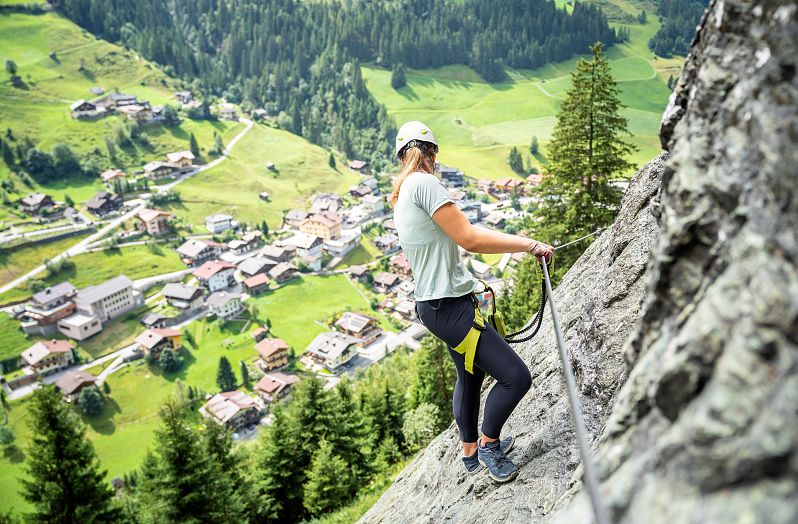
For those who are less experienced in climbing, there's also the practice via ferrata known as the "Gletschergoass" with a height of around 55 meters, a length of 250 m, and a B difficulty rating. The approach is the same as for the Kupfergeist via ferrata.
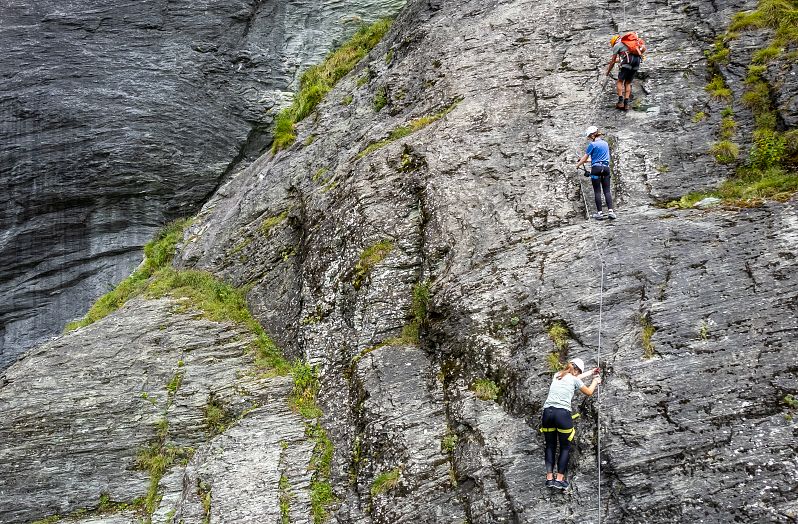
In May 2012, a new, third via ferrata was created through the "Hüttschlager Wand," known as the "Franzl-Steig," named after its creator Richard FRANZL, renowned in the climbing community for numerous unique routes in the Alps, including the legendary "Königsjodler" on the Hochkönig. The route is 400 m long and 210 m high, with difficulty ratings C–D. The approach and descent are the same as for the Kupfergeist via ferrata.
Via ferrata on the Saukarkopf
"Bella Cascinaia"
A short but scenically beautiful via ferrata leading to the Saukarkopf, the 2,048 m high local mountain outside Grossarl. The west wall rises steeply above the lush alpine meadows, leading you on a beautiful climb to the summit. From there, you have a magnificent view of the Hochkönig, the Dachstein, and the Ankogel group. A small rope bridge offers an additional, airy challenge.
This via ferrata is easily accessible via the marked hiking path to the Saukaralm, continuing in the direction of the Saukarkopf as far as the "via ferrata" marker.
Initially, it ascends over a large rocky pillar, increasing in difficulty, then to the right over the slightly overhanging edge to the key section just before the pillar head (D/E).
Immediately after, a two-rope bridge helps you cross an airy abyss to the main wall.
Continue upwards via a steep rockface, before the route – now less difficult – leads over a beautiful section of rocky slabs. Following this, you make a steep ascent along a small edge (C/D). After a slightly easier flat section, you reach another edge leading to the last, challenging part of the via ferrata. Continue more easily through flatter terrain to the exit point.
Your descent is via the marked hiking trail from the Saukarkopf.
Climbing routes
Arlspitze
For experienced climbers, there are numerous climbing routes on the Arlspitze, the rocky crag in front of the Schuhflicker. From very short to very challenging routes, there's something suitable for every climber here. These routes have been refurbished and fully equipped with bolts.
Climb the "Weg der Jugend," "Rückkehr des Schweinepriesters," or "Schuastanagei." A detailed list and description of the climbing routes on the Arlspitze can be found in the following PDFs.
All climbers must bring a rope and climbing equipment (harness and quickdraws) for the climbing routes.
Safety rules for the via ferrata
safely on the via ferrata and climbing routes
Just as with hiking and mountaineering in general, there are some basic rules you must follow when climbing. By adhering to the following rules, you minimize the risk to yourself and others on via ferratas:
- Comprehensive Planning – Review the description of the via ferratas in advance and then choose one that best matches your physical condition and fitness.
- The goal should be adapted to your personal circumstances. Rock experience and a head for heights are essential for climbing.
- Bring and use complete, standards-compliant equipment! Helmet, climbing harness, and via ferrata set are standard, gloves and climbing shoes are recommended.
- Pay special attention to the weather! Never start climbing in snow, rain, thunderstorms (lightning is particularly dangerous), or when it's wet or icy.
- Never have blind trust in the via ferrata safety features! Pay special attention to the safety hooks and steel cables.
- Partner check at the base. Before entering the via ferrata, check the loops, knots, and carabiners of your climbing partner.
- Maintain sufficient distances! Falls can happen unexpectedly and quickly, so keep a minimum distance of 2 steel-cable anchor points between climbers. Also, be especially careful with loose stones and avoid dislodging any.
- Communicate clearly and have consideration for other climbers. Inform your climbing partner in advance about what you're doing or if you're having difficulties.
- Descend exclusively via the marked hiking trails.
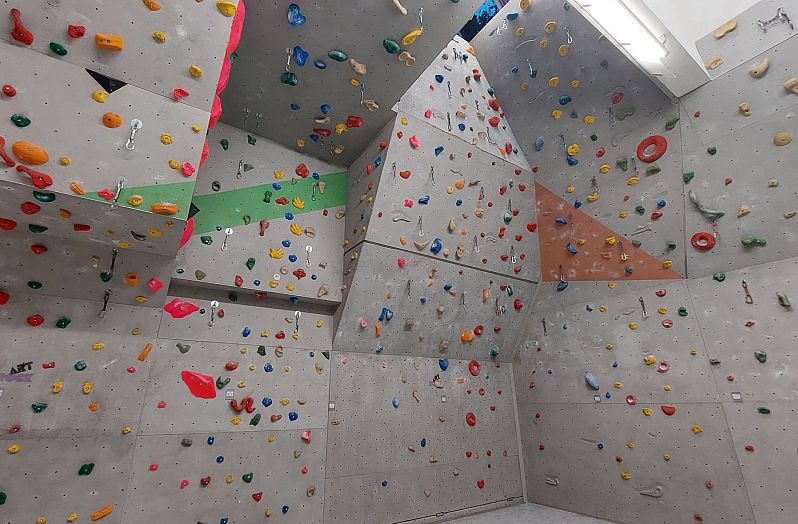
You can climb and boulder in the ÖAV climbing hall in the "Berg-Schule" in Grossarl. Yellow, red, blue and many other colors adorn the various climbing routes on the walls. Whether you are a beginner or an advanced climber, everyone is sure to find the right route in the indoor climbing hall, as around 40 different climbing routes await you on a climbing area of 213 m². Tickets for the climbing hall are available from the ticket machine directly at the entrance.
Tip: The BERG-GESUND association offers a taster climbing session in the climbing hall in winter. Sport climbing takes place once a week and is also ideal for families with children aged 6 and over. You can find detailed information about the sport climbing taster session here.
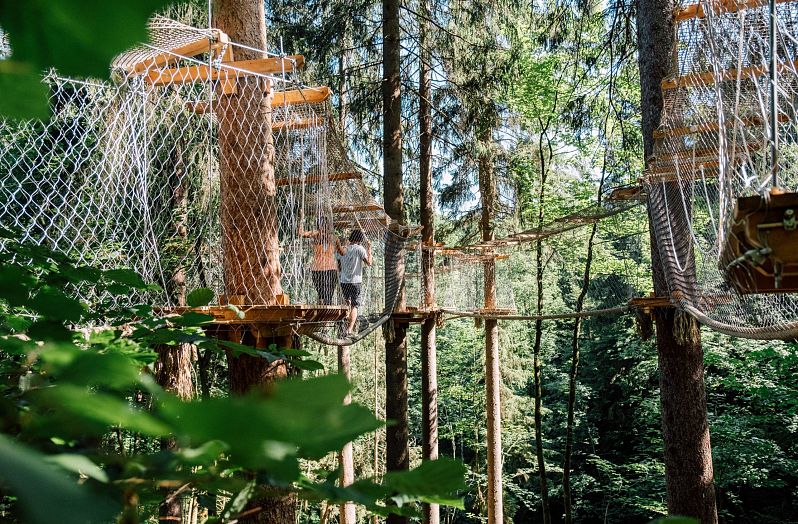
There are many climbing gardens and climbing parks in the regions around Grossarltal. You can experience thrills and feelings of happiness at dizzying heights, which can make your heart beat a little faster. In the high ropes courses you can test your limits and overcome your fears. Children also enjoy the different levels of difficulty of the high ropes courses.
Climbing fun for the whole family can be found in these climbing parks:
- Tree parcours in St. Johann im Pongau
- Adventure Forest in Altenmarkt
- High rope course Alpincenter in Flachau
- Forest adventure park Salzburg in Anif






